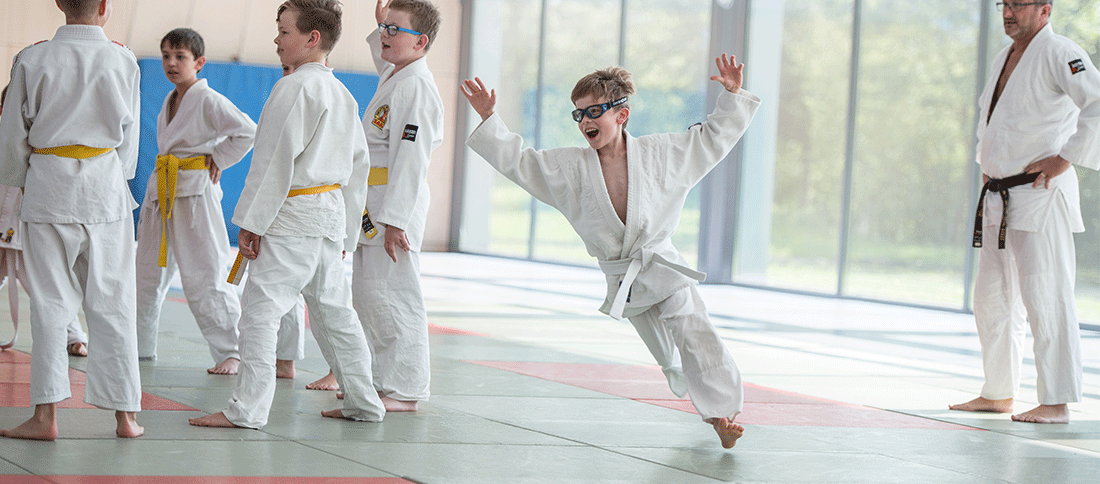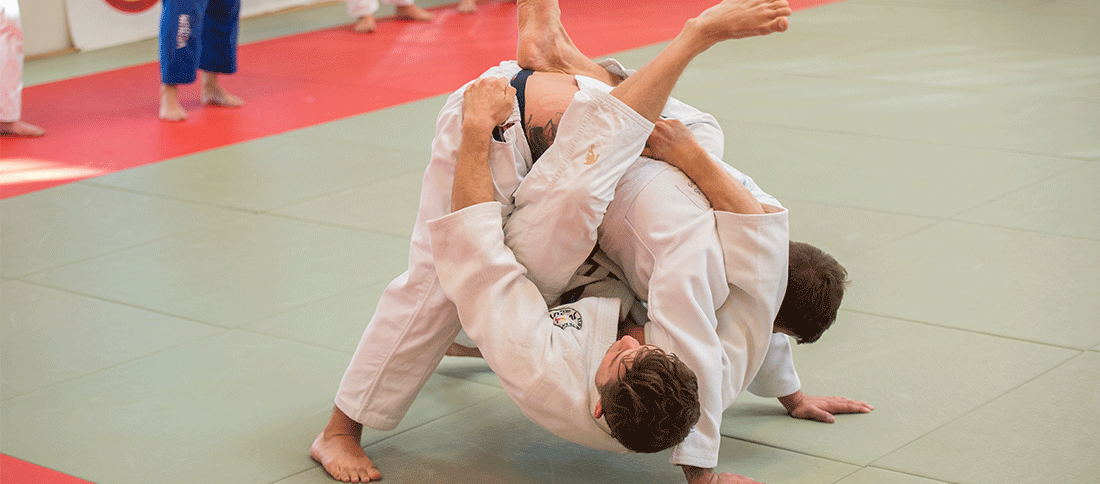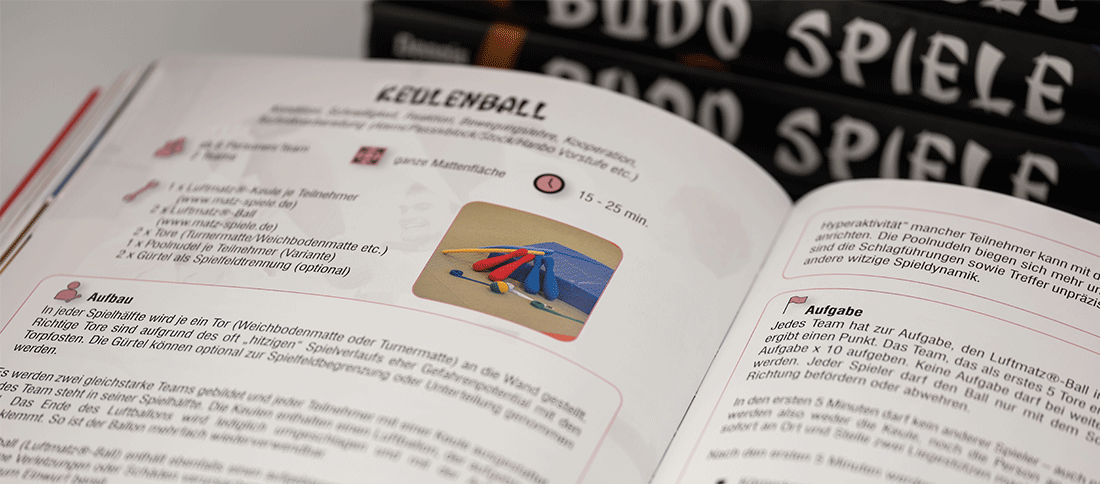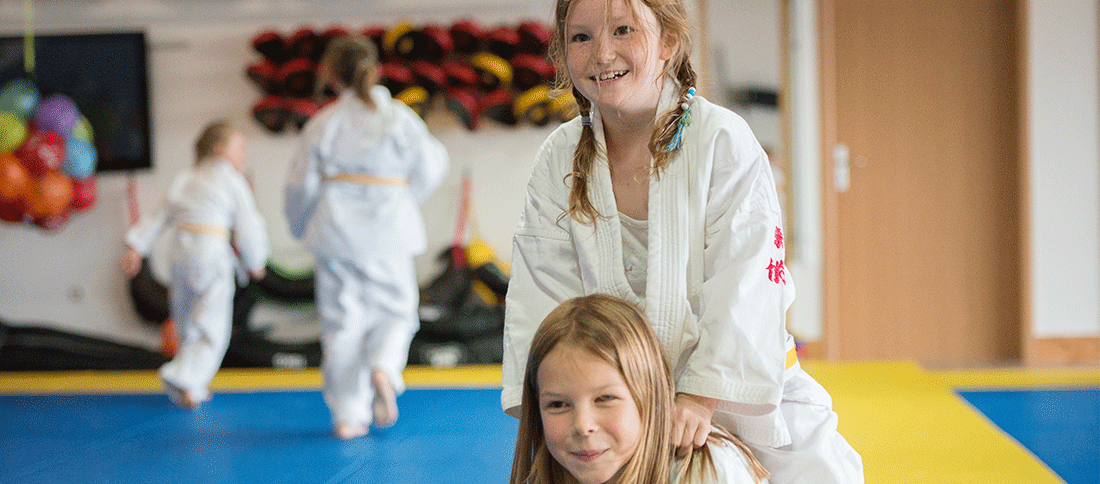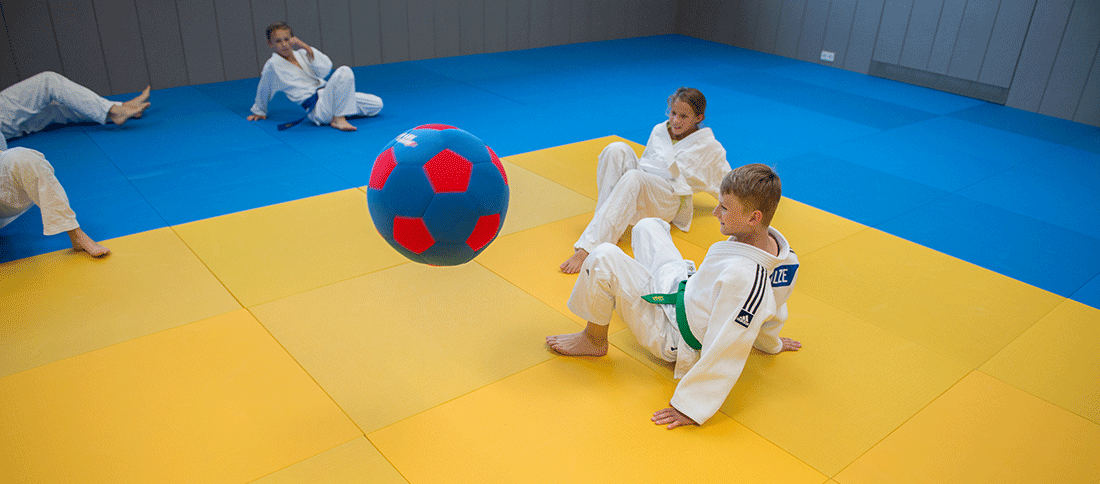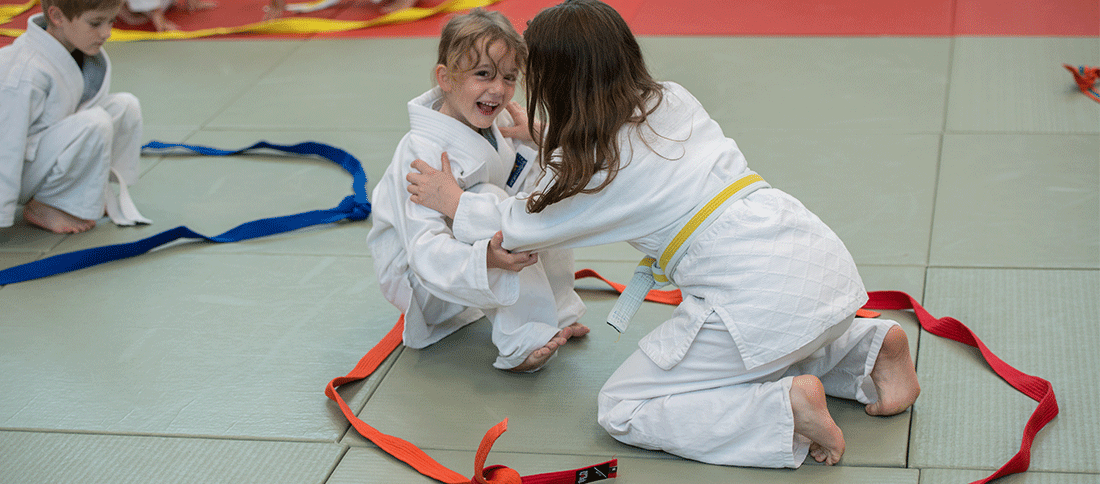Budo Games - What is it?
Budo is a Japanese term that literally means "military or martial way". And it is the generic term for all Japanese martial arts. These include Aikido, Bujinkan, Iaidō, Jiu-Jitsu, Judo, Karate, Kempō, Kendō, Kyūdō Shōrinji, Suijutsu, Sumō and others! If you want to know more, you are welcome to continue reading here at Wikipedia.
Budo games are therefore "fighting games" - forms of play and practice for martial arts.
With these, movement sequences, techniques etc. can be developed from the easy to the difficult, from the known to the unknown and from the simple to the complex. And all that with a lot of fun - including conditioning, coordination and strength training. Not to mention the social component. Working together as a team - learning to win and lose. This is how self-confidence is developed when participants have to hold their own in a wide variety of challenges.
In the books you will find four categories of games:
Individual exercises / individual games
Partner exercises / partner games
One against team
Team against Team
All game categories are color-coded on each page so you can quickly find your way around and tailor everything to your group. For each game there are many variations, so that no games are boring and also always new incentives are created.
The use of the term "budo games" always depends on the group you are in front of. If you hold a training session with children and use the word "games", all the children's eyes light up immediately and the training cannot start fast enough. Because playing is in our nature, so children as well as young people love to play. What children want less is to practise or be "drilled". Games are nothing other than exercises. Just packaged differently and named differently. For adults, the term "games" often triggers a derogatory facial expression. According to some adults, games are supposedly stupid and only meant for children. Not at all. As a rule, adults prefer to play much more than children and sometimes get much more involved. That is, if they have ever started to play. Here it makes sense not to use the word "games", but "form of exercise" or also the English term "drill" (= exercise). Whether the term "game" or "drill" is used should not really matter. But if you can reach the trainees better that way, then as a trainer you adjust to exactly these things. You package the same thing, just under a different name. In a way, we have forgotten how to play as adults and we are missing out on so many beautiful, joyful and creative moments. Have the courage to grow beyond yourself again!
Elements of Budo games from other martial arts disciplines
One or the other of you will think, what should I do with this or that game? These techniques do not occur at all with us. As a judoka, why read through a game that has to do with breathing techniques? Simply because you might get new ideas and modify this game for your area. As a Judoka through and through I came to Jiu-Jitsu as well as Ju-Jutsu - thanks to Joe Thumfart. The Atemi techniques took a lot of getting used to for me as a "Judo cuddler" at first. But many exercises and techniques have not only brought me further in my understanding of techniques in Judo. Above all they caused many "aha-effects" and stimulated the grey cells. So I found some exercises or games great, so that I thought about how I can modify them and use them for judo techniques. What techniques would come into question? Can I combine this with this or that well-known exercise? In this way, a permanent and creative thought process has developed. When I hold judo sessions, I bring back so many new ideas from a related martial art. And vice versa from judo to jiu-jitsu or ju-jutsu. Even though it is a different association and, as we all know, political functionaries never like it when you cheat in this respect and are afraid of losing members. That's not cheating, that's thinking outside the box. Discovering possibilities, combining them and sharing them with others. That's what makes our sport and that's how we often get ahead again.


